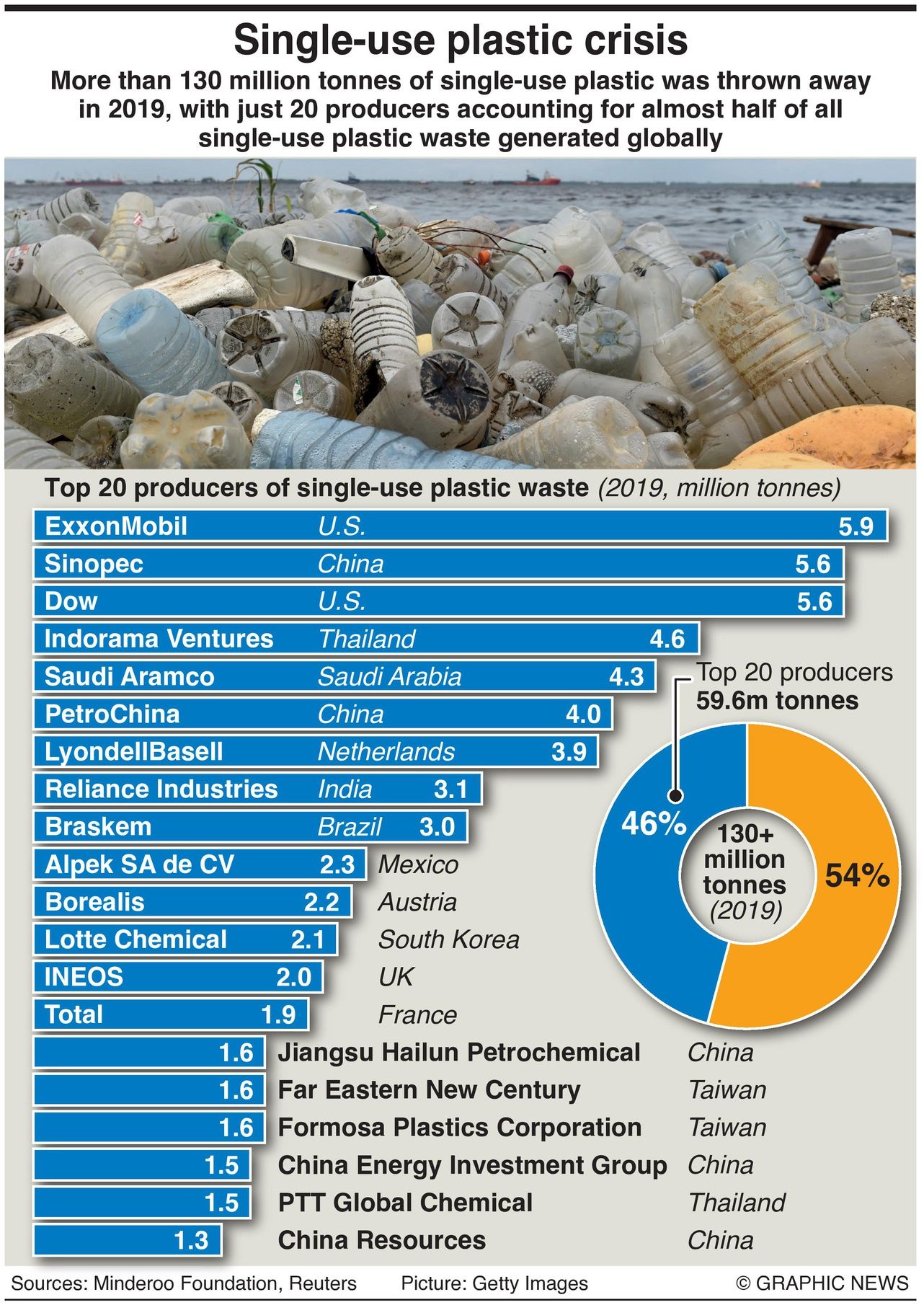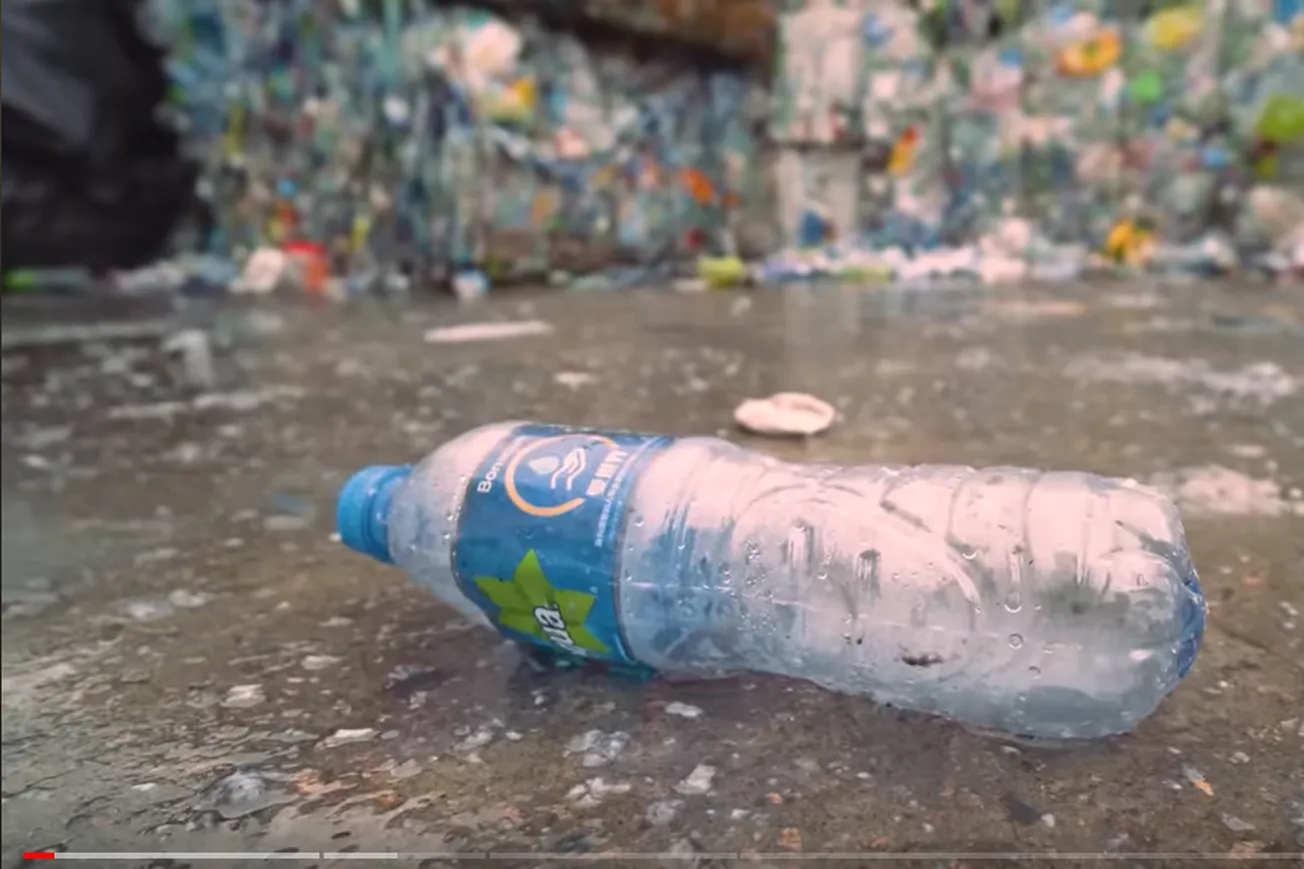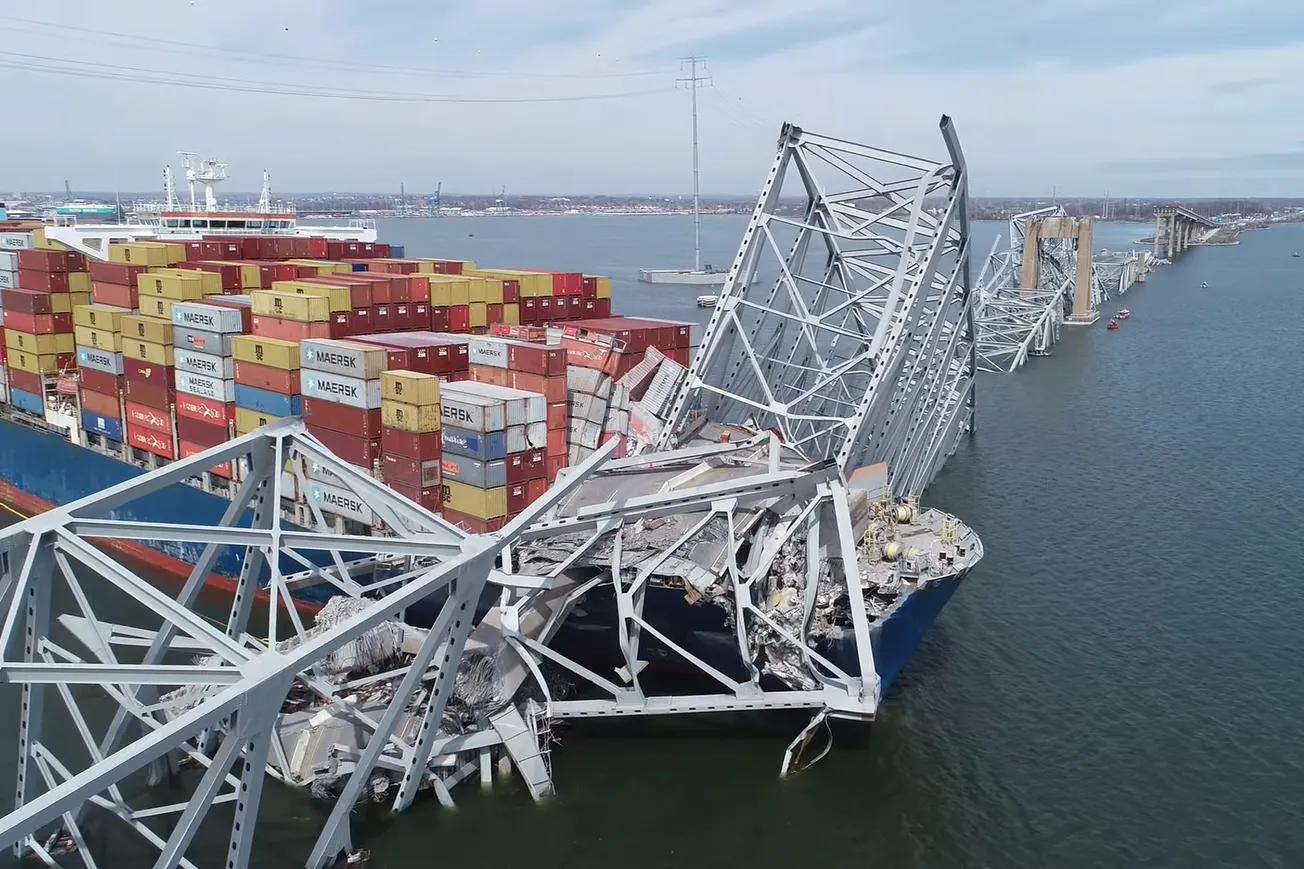More than 130 million tonnes of single-use plastic was thrown away in 2019, with just 20 producers accounting for almost half of all single-use plastic waste generated globally.

“Of all the plastics, single-use are the most likely to end up in our ocean, where they account for almost all visible pollution, in the range of five to 13 million tonnes each year,” Australia’s Minderoo Foundation said in its Plastic Waste Makers Index on Monday (February 6).
But while growth has slowed recently, the production of single-use plastic from “virgin” fossil fuel sources is still nowhere near its peak, and the use of recycled feedstocks remains “at best a marginal activity,” the report said.
In 2019, just 20 polymer producers accounted for almost 60 million tonnes of single-use plastic waste generated globally.
U.S.-based ExxonMobil and Dow and China’s Sinopec top the list, with these three companies accounting for 16 percent of global single-use plastic waste.
The Minderoo Foundation reports that 20 institutional asset managers -- led by U.S. companies Vanguard Group, BlackRock, and Capital Group -- hold over US$300 billion worth of shares in the parent companies of these polymer producers.
An estimated $10 billion comes from producing virgin polymers for single-use plastics. Twenty of the world’s largest banks, including Barclays, HSBC, and Bank of America, are estimated to have lent almost $30 billion for producing these polymers since 2011.
Minderoo estimates that the polymer industry produced 137 million tonnes of single-use plastics from fossil fuels in 2021.









